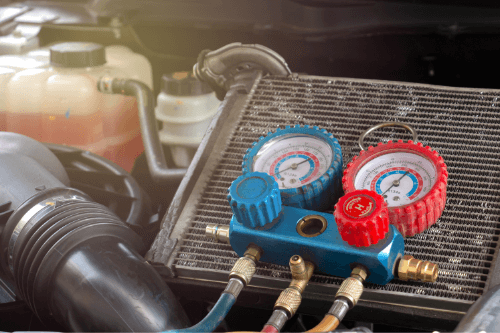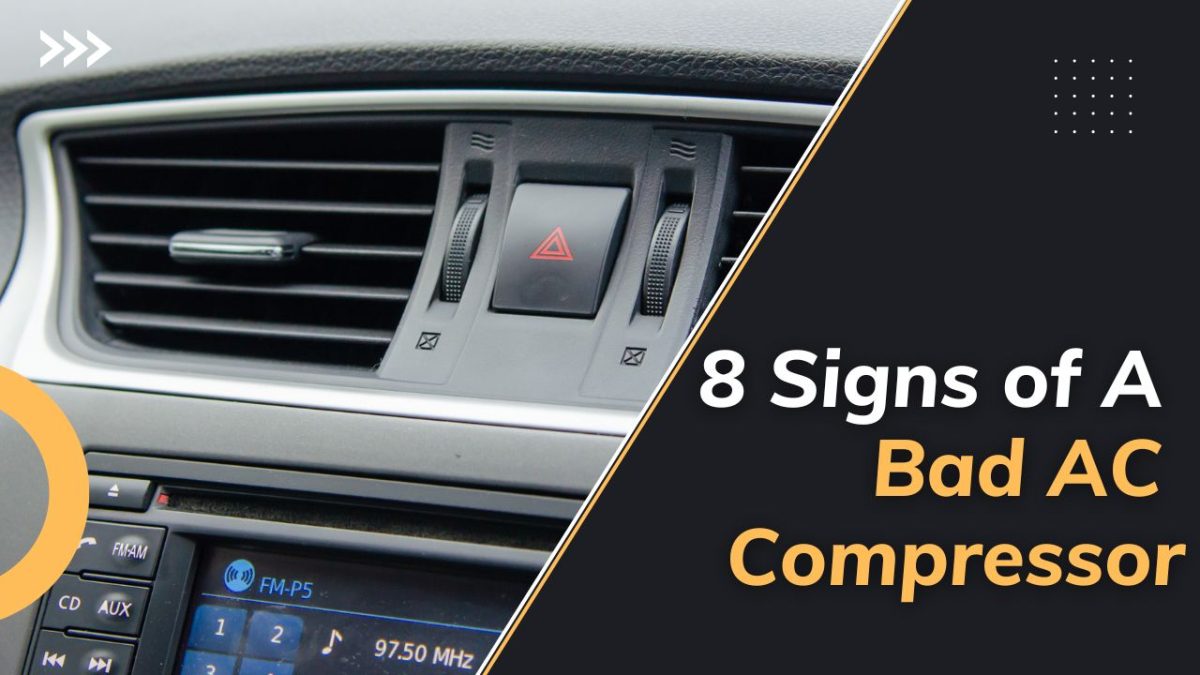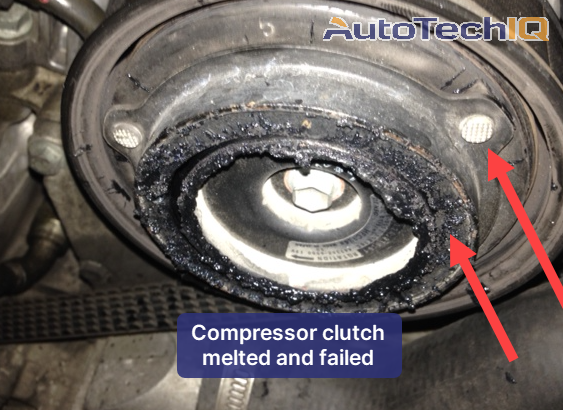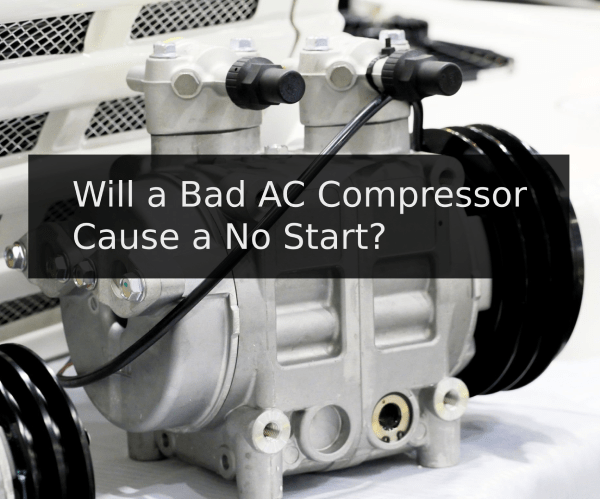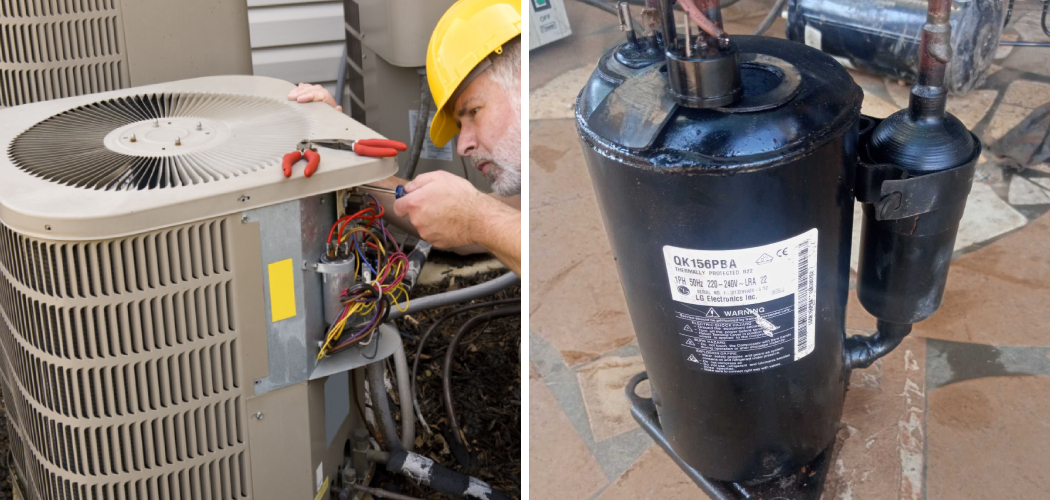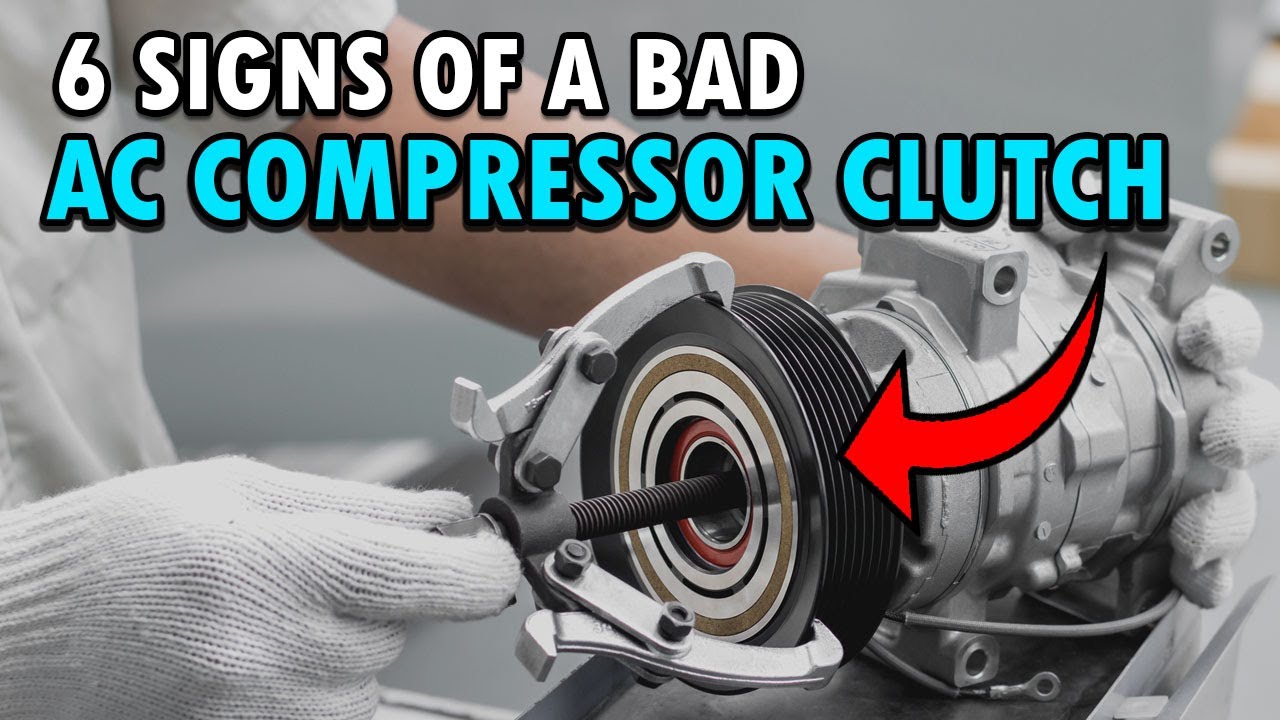How To Tell If Your Car Ac Compressor Is Bad

As summer temperatures climb, a functioning car air conditioning system becomes less of a luxury and more of a necessity. But what happens when that cool blast turns into a lukewarm puff? A faulty AC compressor is often the culprit, leading to uncomfortable drives and potentially costly repairs.
This article delves into the telltale signs of a failing AC compressor, providing car owners with the knowledge to diagnose potential problems early and avoid further damage. Understanding these warning signs can save time, money, and prevent unexpected breakdowns.
Understanding the AC Compressor's Role
The AC compressor is the heart of your car's air conditioning system. It's responsible for compressing the refrigerant, which then circulates throughout the system to cool the air blown into the cabin.
When the compressor fails, the entire AC system's efficiency is compromised. This results in insufficient cooling or a complete lack of cold air.
Common Symptoms of a Failing AC Compressor
Weak or No Cold Air
The most obvious sign of a bad AC compressor is the absence of cold air. If you turn on the AC and only warm or lukewarm air comes out, the compressor may not be functioning properly.
This could indicate that the compressor is not compressing the refrigerant as it should. It could also mean that the refrigerant level is low due to a leak in the system.
Unusual Noises
A failing compressor often emits strange noises when engaged. These sounds can range from loud squealing to grinding or rattling noises.
These noises are caused by worn-out bearings, internal damage, or a failing clutch within the compressor unit. Ignoring these sounds can lead to more severe damage and a complete compressor failure.
Clutch Problems
The AC compressor clutch is responsible for engaging and disengaging the compressor. If you notice the clutch failing to engage, it may be a sign of a bad compressor or a problem with the electrical circuit controlling the clutch.
Visually inspect the clutch; if it’s visibly damaged or if it’s slipping, it needs attention.
Refrigerant Leaks
While not directly a symptom of a failing compressor, refrigerant leaks can significantly impact its performance. Leaks can lead to low refrigerant levels, which can stress the compressor and eventually cause it to fail.
Look for oily residues near the compressor or other AC components, which could indicate a refrigerant leak. A professional AC system check is crucial if you suspect a leak.
Overheating Engine
In some cases, a failing AC compressor can cause the engine to overheat. This happens when the compressor seizes or becomes difficult to turn, placing extra strain on the engine.
If you notice your engine temperature rising abnormally when the AC is on, immediately turn off the AC and have the system inspected.
DIY vs. Professional Diagnosis
While some preliminary checks can be done at home, diagnosing an AC compressor issue often requires professional expertise. Checking refrigerant levels and visually inspecting the compressor for damage can be done by the car owner.
However, using specialized tools to measure refrigerant pressure or test the compressor's electrical components should be left to qualified technicians. A professional diagnosis will pinpoint the exact cause of the problem and recommend the appropriate solution.
Repair Options and Costs
Depending on the severity of the issue, repair options can range from replacing individual components like the clutch to replacing the entire compressor unit. Replacing the compressor is a more expensive solution, but it ensures a more reliable and longer-lasting repair.
According to RepairPal, the average cost to replace an AC compressor can range from $700 to $1200, including parts and labor. Prices vary depending on the vehicle model and the shop’s labor rates.
Preventative Maintenance
Regular maintenance can help extend the life of your AC compressor and prevent costly repairs. This includes having the AC system checked annually by a qualified technician.
Regular checks can ensure that refrigerant levels are optimal, and identify any potential issues before they escalate. Consider replacing the cabin air filter regularly for improved efficiency.
The Bottom Line
Recognizing the signs of a failing AC compressor is essential for maintaining a comfortable and safe driving experience. Addressing these issues promptly can prevent further damage to the vehicle and potentially save money on repairs.
If you suspect your AC compressor is failing, consult a qualified mechanic for a professional diagnosis and repair. Don't delay— a functioning AC system is a valuable asset, especially during the hot summer months.




